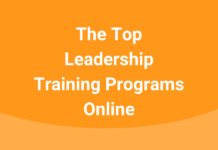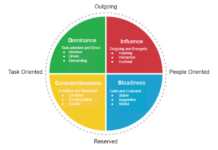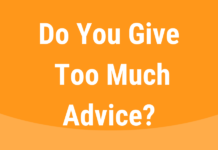
“Take a seat. Why don’t you tell me about yourself?”
You wrote your resume, aced your cover letter, and you finally made it to the interview.
The only thing you did not prepare for is the “Tell Me About Yourself” question.
You sit down, your smile begins to shake, you take a deep breath and… A deluge of chopped word salad pours out of your mouth.
Before you can take a beat to focus, you’re already knee deep in describing the time when you were six-years-old and you managed to snag the last snack pack in the lunch line (an accomplishment in its own right.)
Then you notice the interviewer’s eyes glaze over, and you know you’re cooked.
Or maybe your mind goes blank. Suddenly you can't remember your own name, let alone any of your accomplishments. You mutter a few titles you’ve held in the past and the silence that follows is deafening.
If you’ve ever been in either of these situations, you are not alone. The “Tell Me About Yourself” question—or TMAY for short—is one of the most notoriously open-ended interview questions around. And it’s not going anywhere.
This question is often overlooked as an easy-going opener when in reality it’s an invitation to talk about what a great fit you are.
As Carole Martin, the Interview coach puts it: “On the surface, this appears to be a straightforward question, but if you answer too hastily you may end up sounding like every other candidate. The answer you give to this question will set the tone for the rest of the interview.”
It’s a stage-setting question, an opportunity for a brief overview of your professional journey. “Think ‘movie trailer’ style,” says Bill Cole, CEO of William B Cole Consultants, “If you like what you see in the trailer, you'll go see the movie. It works the same in an interview. Hook the interviewer in, get them interested, and you've made that great first impression.”
Amy Wolfgang of Wolfgang Career Coaching agrees: “The Tell Me About Yourself question is used as an ice-breaker, a get to know you question–typically the first one you will be asked. It’s a starting off point.”
So what is this question really about? What are employers trying to learn about us, and how can we use this opportunity to shine?
Here are the top tips to tackling the dreaded Tell Me About Yourself (TMAY) question:
TELL ME ABOUT YOURSELF…AND REMEMBER LESS IS MORE
Now that we all have shorter attention spans than the average goldfish, it’s increasingly important that you keep your answer short and sweet.
While I would argue that telling a short story about a time at work when you kicked butt is totally appropriate, the consensus is that brevity is the soul of wit.
“An analogy I use with clients is: ‘Open your shirt one button at a time. You don’t have to show everything right away.’” Says Carole Martin, “In fact, if the interviewer is a more-introverted type of person, and you are a highly-extroverted person, you may be coming off as a ‘tsunami.’ Too much information – given too soon.”
Amy Wolfgang agrees, “Each client will answer the question in a different way depending on their unique selling point and key points they want to convey. While the content is unique to each client, the goal is to practice it and be brief. Keep the TMAY answer to about 2 minutes. Any longer than 2 minutes and you will likely lose the focus on the hiring manager.”
Practice your answer while timing yourself and eliminate any tangents.
TELL ME ABOUT YOURSELF…AND DON’T GET TOO FANCY
Applicants often feel a pressure to be charming or funny with this question, but neither are boxes the interviewer is trying to tick off for a future employee.
As James Luckhurst of Interview Guru says, “Our advice would be to use the opportunity to present two or three relevant strengths, skills and qualities that you believe will resonate with what’s required for the particular opportunity. Then make sure you backup whatever you say with one or two memorable examples that will help to prove your suitability.”
Bill Cole agrees, “[It’s] supposed to be a brief answer that gives a quick snapshot or overview of who you are, where you are in your career, and that intrigues the interviewer. It's designed to be a high-level tour of your professional career, without much detail.”
To prevent veering off course, stick with what Bill calls the Short TMAY formula:
- Who you are as a professional.
- One major accomplishment (or two smaller solid accomplishments.)
- What you are looking for in a job (But never use the word “job”. Instead say “position” or “opportunity”), and how this matches the stated position.
- Ask a question about the position to break up your monologue and seek data that will customize and guide your next statements.
- Using the data you just learned, focus on what you can bring to this position.
This is an easy way to make sure you stick to what needs to be conveyed instead of trying to impress in the moment. Remember, they have your resume in front of you so you don’t have to hit every bullet point.
Don’t be afraid to keep things simple and straightforward.
TELL ME ABOUT YOURSELF…AND SELL YOUR SKILLS
The TMAY question is an opportunity to bring your unique and relevant skills to the forefront, and opens the conversation to your strongest assets.
“I work with my clients on identifying their unique selling point for the position,” Amy Wolfgang writes, “What is unique about them? What aspects of their experience, skills, strengths, personal characteristics will make them stand out? My clients also identify the three to five key points they want to ensure they convey to the hiring manager in the interview. Based on this preparation, the client has the foundation to explain what they want to say.”
Think on a few of your transferrable skills and be prepared to speak on them with confidence.
TELL ME ABOUT YOURSELF…AND END WITH A QUESTION
How to end the answer to the “Tell Me About Yourself” question is often one of the most challenging aspects. There’s nothing worse than speaking with great confidence only to end with a “Uh…So, yeah. That’s it.”
“Many of my clients struggle with how to end the TMAY question,” Amy says, “This is important. You don't want to simply trail off at the end. You can make a declarative statement like, ‘I'm excited that my interests and skills line up with the responsibilities of the position.’ Or you can end it in my favorite way, with a question like: ‘Is there anything you’d like me to expand on?’ By asking a question, you engage the hiring manager and keep the interview in a conversation mode.”
Ending your answer with a question keeps the interview flowing, and offers the employer the opportunity to inquire further about something you've said.
__
There you have it, the simple steps to making sure you ace the one interview question you can always count on getting.
Be sure to reach out to Tara@LEADx.org if you have your own successful (or unsuccessful!) “Tell Me About Yourself” question, or if there are any tips you think we missed!
To find out more about our experts and their amazing services, you can find all their links below:
Amy Wolfgang, Wolfgang Career Coaching
Bill Cole, William B Cole Consultants, Mental Game Coach
Carole Martin, The Interview Coach
James Luckhurst, Interview Guru





